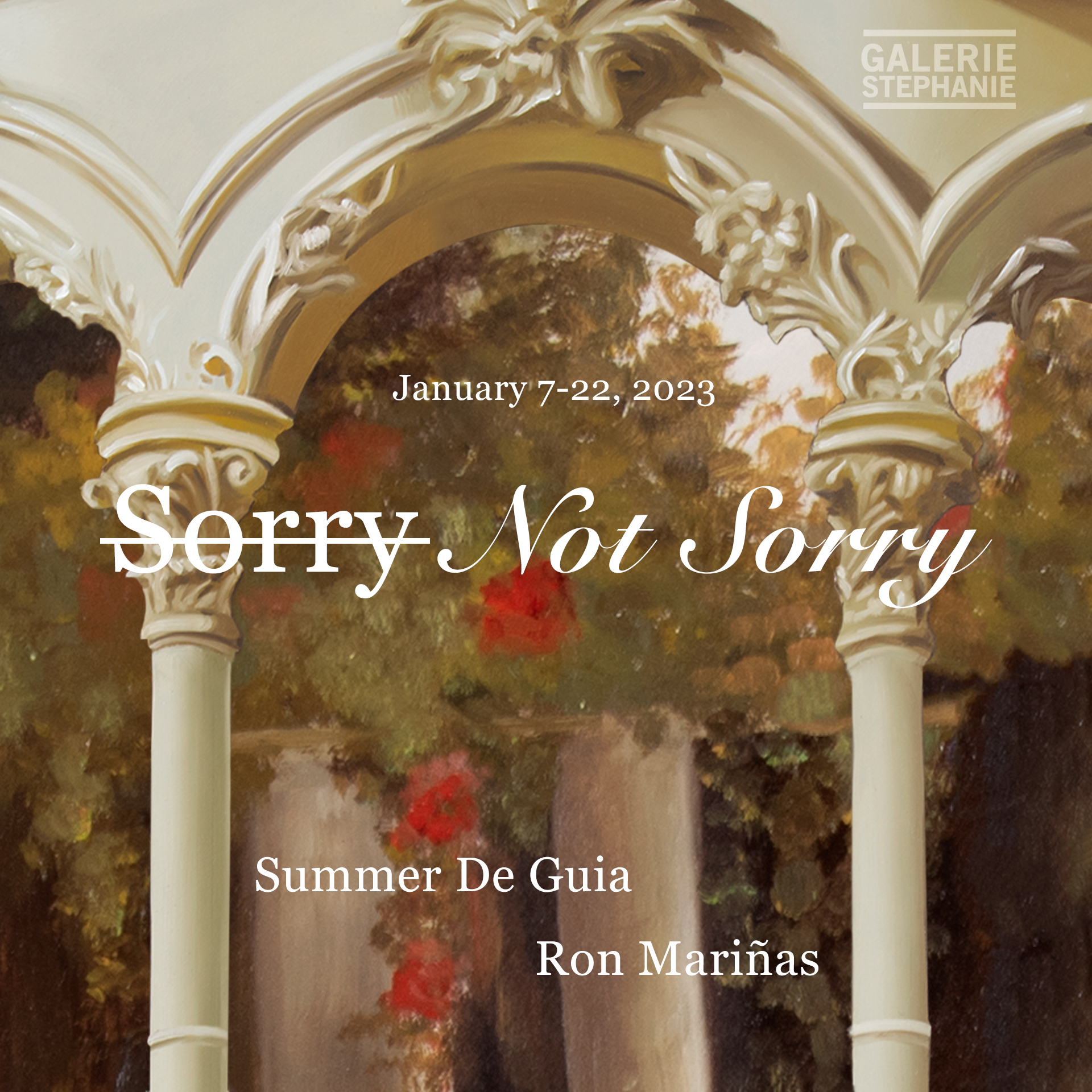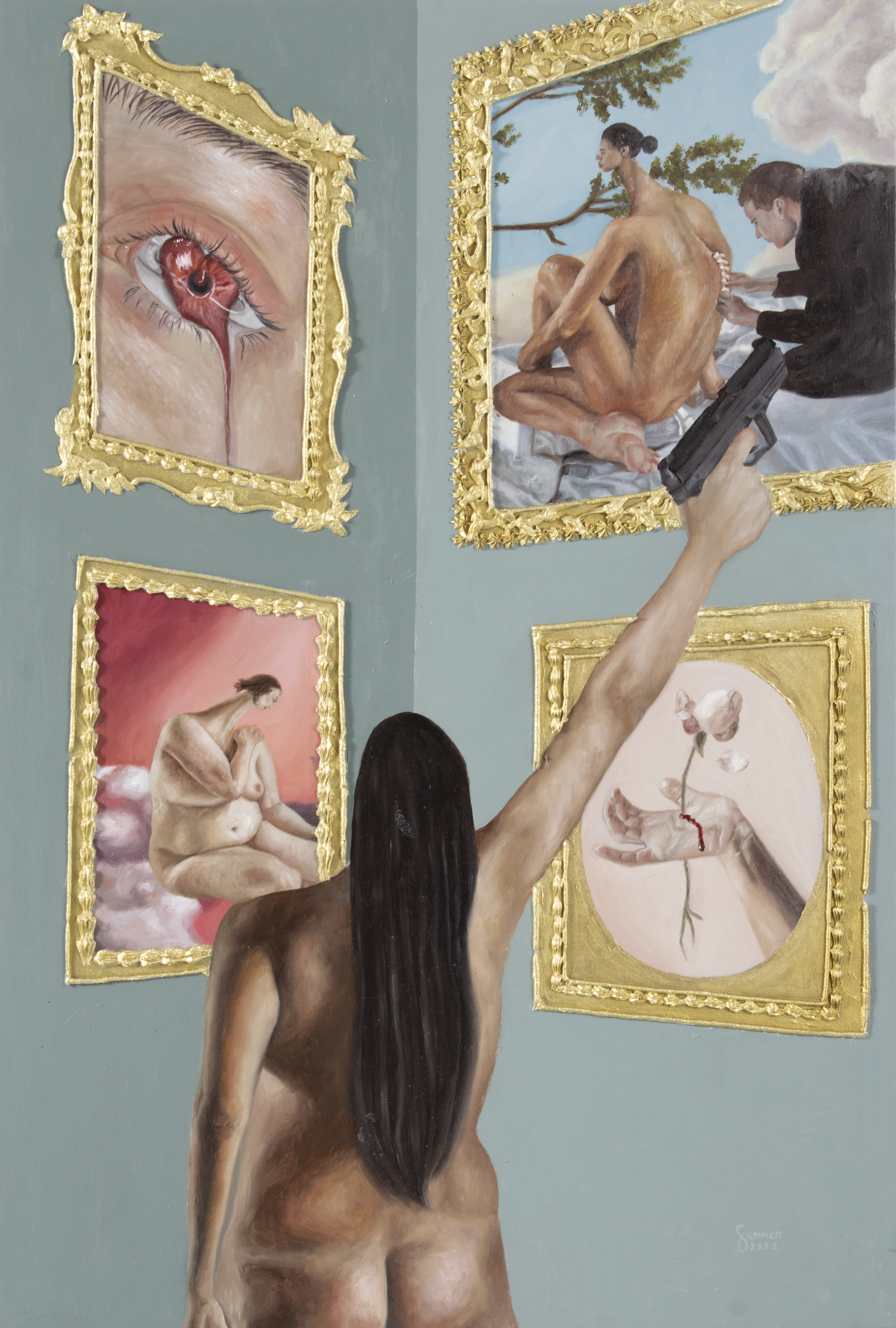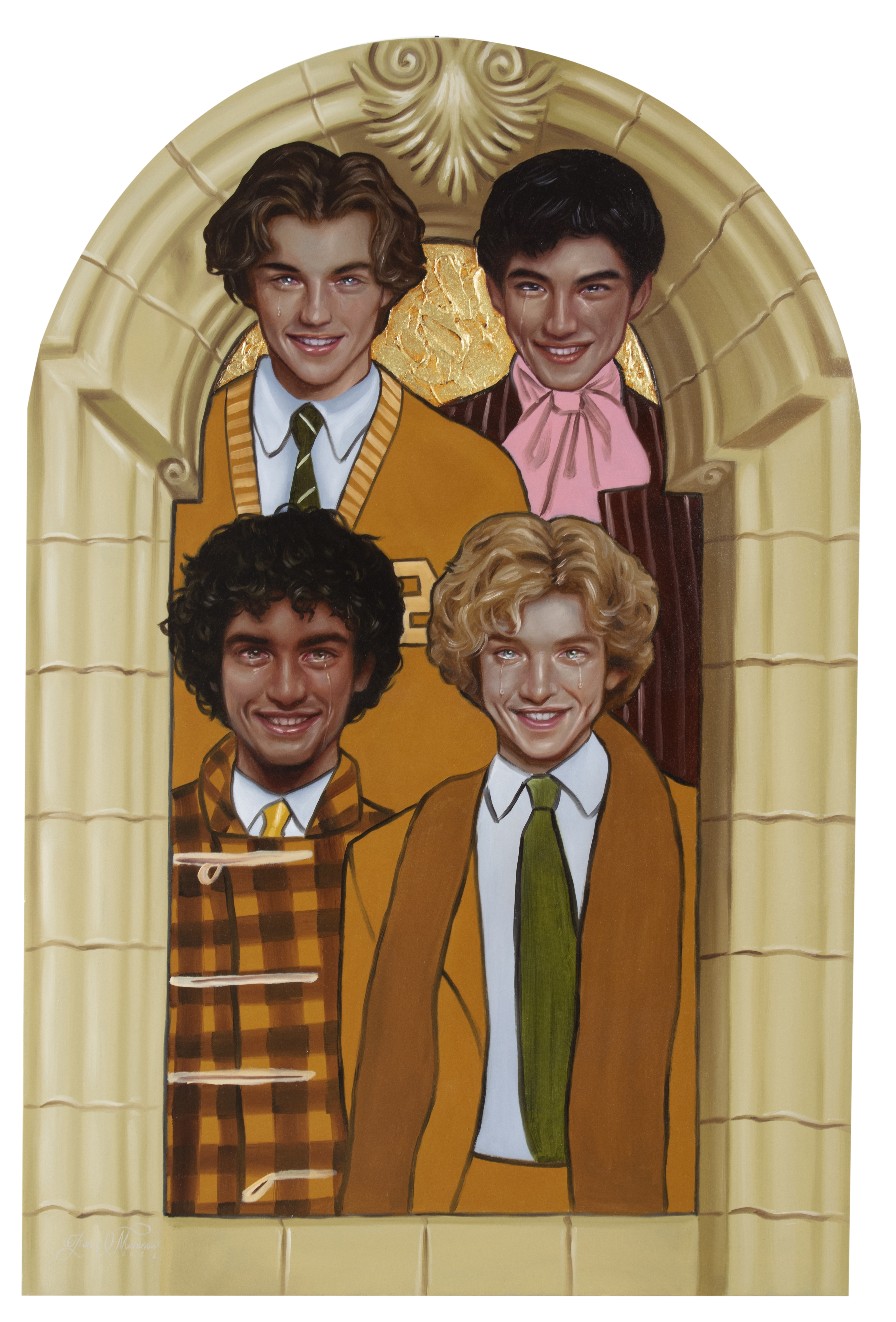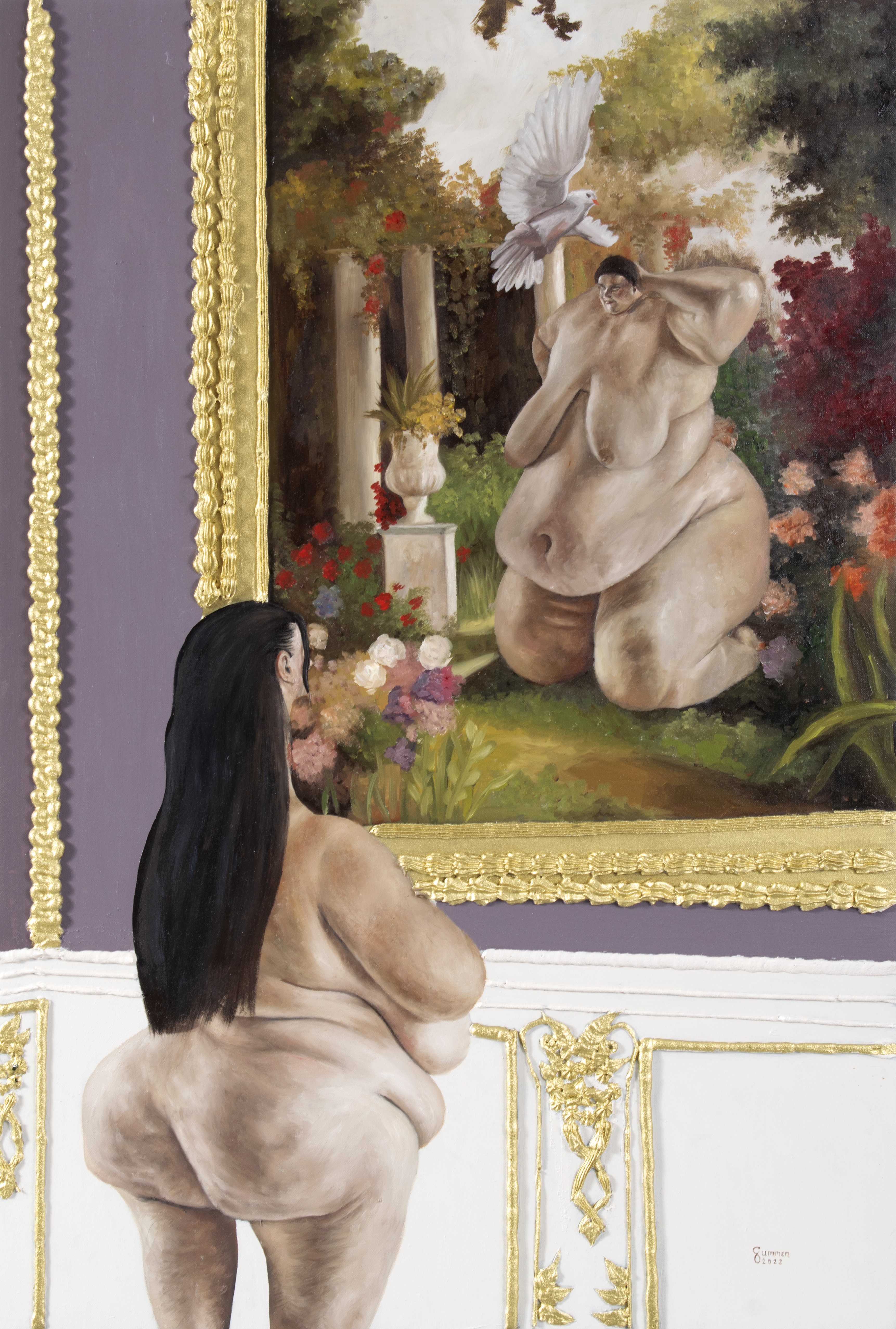In the opulent tableaux of visual artists Summer de Guia and Ron Mariñas, figures test the definitions, standards, and limits of beauty.
S̶o̶r̶r̶y̶ Not Sorry is unapologetically forward, unafraid of laying everything bare, and unflagging in reclaiming the power of the word that has all but lost its value in a culture that has individuals walking on eggshells around fickle social expectations.
Mariñas continues his studies of male vulnerability in defining the notion of modern masculinity. The artist’s artistry is recognizable by a distinctive sartorial edge as he pays homage to iconic fashion houses and trends both current and timeless. In his piece Sorry But I’m Pretty When I Cry, four male figures share the same forlorn expression, tears rolling down their cheeks, down to their cool, imperturbable grins. The Napoleonic figure of Sorry for Moving Forward is another example, and stands to challenge notions of chivalry—of following rules of behavior—and just how they align with honorable and valorous intentions.
De Guia’s gilded pieces meanwhile hearken back to more classical structures, demonstrating a taste for baroque aesthetics. Her distinctively distorted subjects are part of a modern revival of the female nude, poised with little regard for anatomical accuracy, as with beauty standards. Still, they remain deific, enshrined in ornate reliefs, with pieces such as Sorry for the late reply, I’ve been busy all day, Sorry but hypocrites will never burn me, and Sorry but unless I am myself, I am nobody resembling grand frescoes on cathedral ceilings.
Together, Mariñas and De Guia’s works embody an approach to owning oneself and one’s truth, unencumbered by societal norms that dictate everything from our aesthetic sensibilities, how and who we choose to love, to our very sense of self. Wearing out the word “sorry”, both artists issue apologies in the manner characteristic of the notorious ‘notes app apology’, a gratuitous practice of self-absolution which, for better or for worse, became a defining feature of contemporary culture online. However, embedded in religious imagery, the sanctity of the word and act of apology is not wholly lost. In S̶o̶r̶r̶y̶ Not Sorry, the hollowed-out sincere apologies beg the question: what actually is authenticity and so what?
Text by Gabrielle Gonzales





